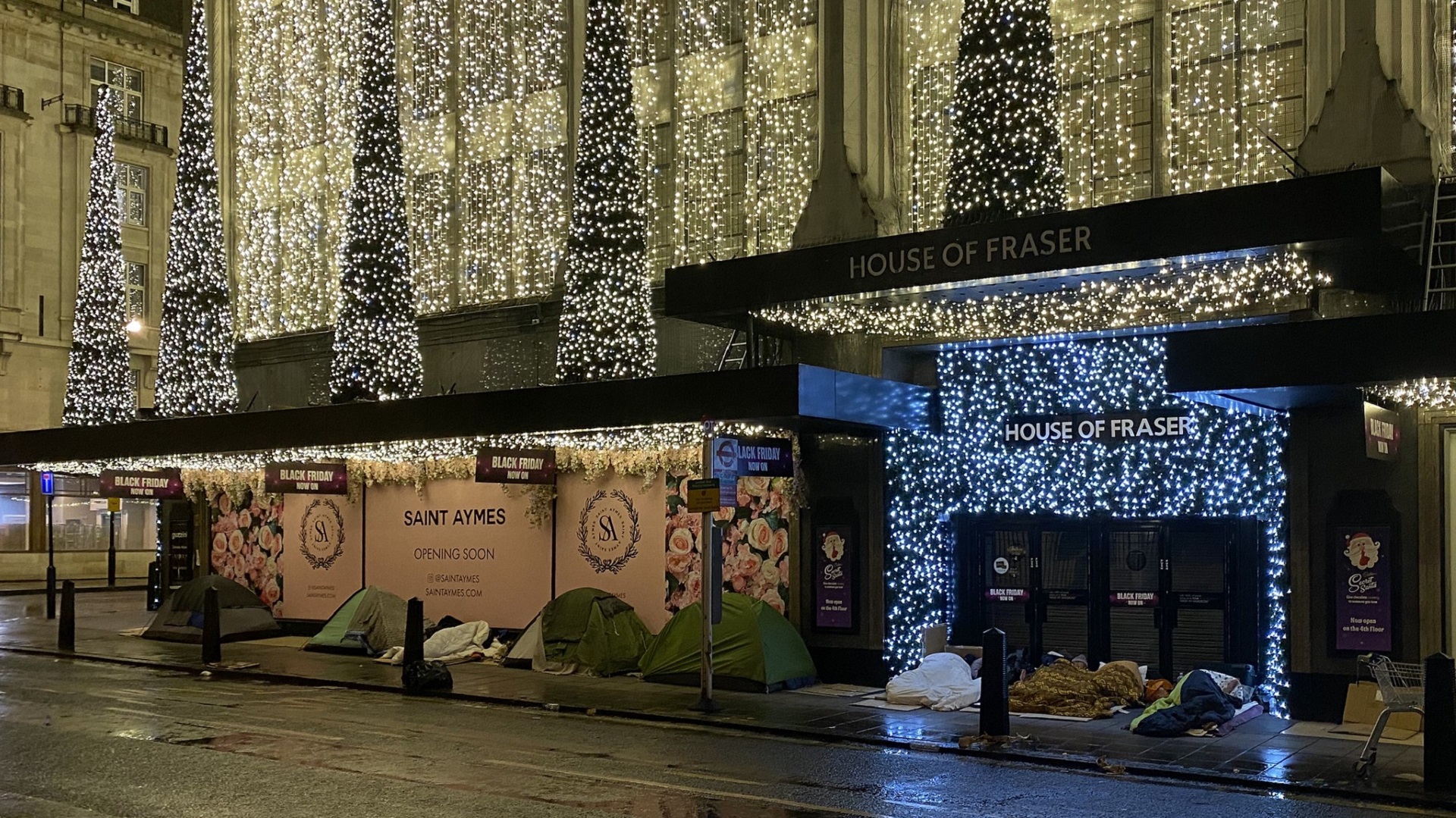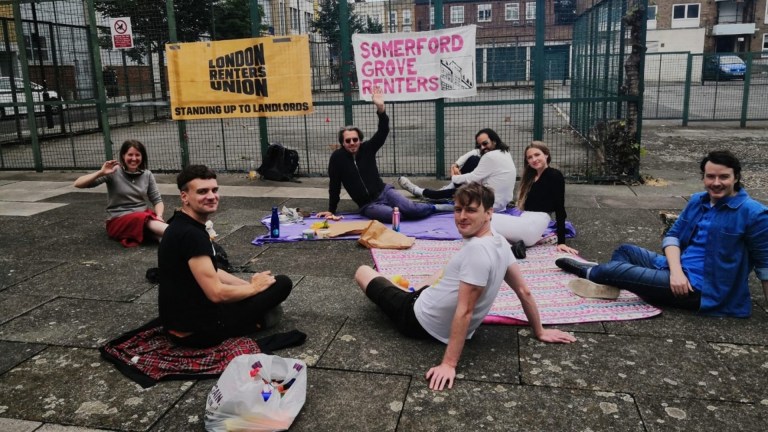“With rents rising across much of the country and the cost of living soaring for most, we know that budgets are being squeezed from all sides and this pressure is threatening to tip more and more people into homelessness over the coming months.”
People who were new to the streets amounted for almost half the total figure with 1,295 people sleeping rough on London’s streets for the first time.
This was 17 per cent lower than the same period last year and three-quarters of the people spotted sleeping rough for the first time spent just one night on the streets before frontline workers helped them into accommodation.
British rough sleepers made up almost half of the people recorded sleeping rough while 83 per cent of the people sleeping rough were male.
The majority of people spotted sleeping rough were aged between 36 and 45.
One in 10 rough sleepers in London were aged under 25 and youth homelessness charity Centrepoint warned the rising cost of living could drive young people to the streets.
“With the cost-of-living skyrocketing we are worried youth homelessness could follow suit if the government does not act now,” said Alicia Walker, the charity’s head of policy, research and campaigns.
“Charities and local government can only do so much to tackle this – the government in Westminster has to step up, but so far has failed to do so. The government’s own deadline to end rough sleeping by 2024 is fast approaching and ministers must go further to match that ambition with an investment and strategy, to get more young people off the streets and into safe and stable accommodation.”
The London-only Chain figures are considered one of the most accurate measures of measuring rough sleeping, especially when compared to the one-night counts and estimates used for the government’s official count, as it tracks the flow of people on the streets over time.
Commissioned and funded by the Greater London Authority, homelessness charity St Mungo’s has previously managed the database but Homeless Link took over at the start of 2022.
A Department for Levelling Up, Housing and Communities spokesperson said: “We are pleased to see the reduction in rough sleepers across London, but there is still more to do. Tackling rough sleeping remains a priority for this Government and we’re investing £2 billion over the next three years to end it for good.
“Councils across the country are continuing efforts to support rough sleepers into permanent homes. In the capital, our latest statistics show that more than 6,500 people have been moved into long-term accommodation and we are working closely with the Mayor’s office, charities, and boroughs to continue this drive and get people the support they need.”










